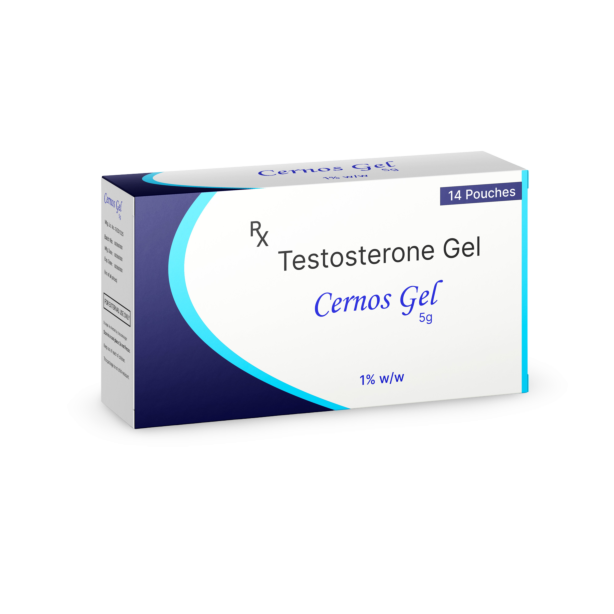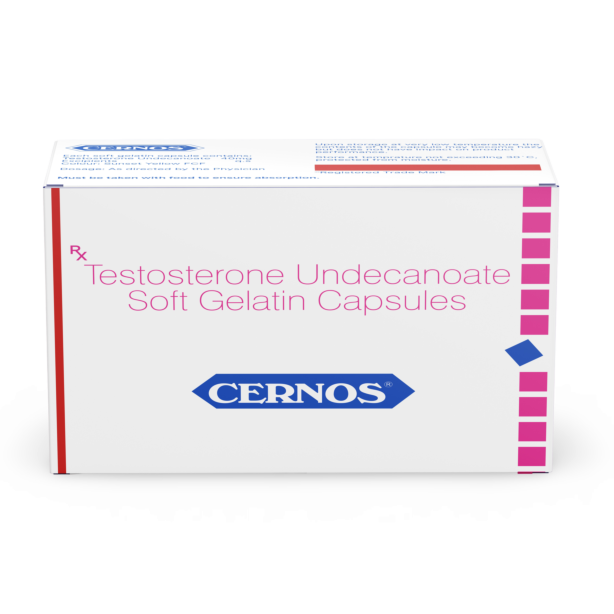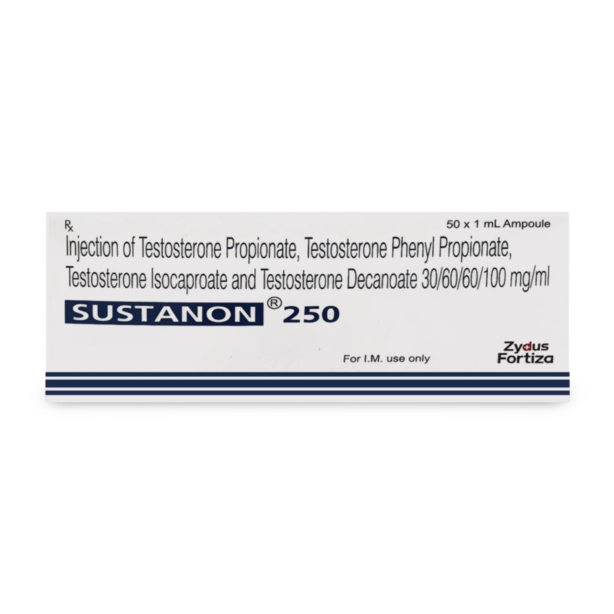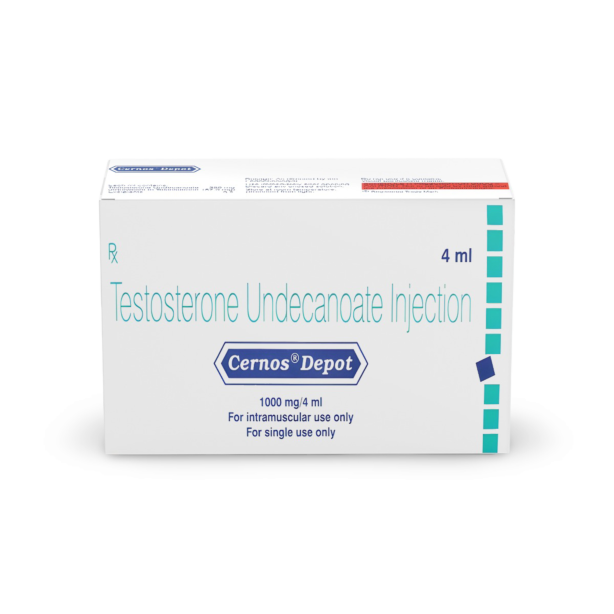Testosterone, often called the primary male sex hormone, regulates muscle mass, bone density, hair growth, sex drive, and mood. While optimal Testosterone levels are necessary for overall well-being, excessively high levels can cause unexpected physical, emotional, and behavioral changes, some of which can lead to serious health complications.
Naturally High Testosterone levels in men are unusual. The majority of cases of elevated Testosterone are caused by external factors such as anabolic steroid use, Testosterone Replacement Therapy (TRT), or underlying medical conditions like adrenal or testicular tumors.
In this article, we’ll look at the most prevalent signs of High Testosterone in a man and why detecting them early might be essential for long-term overall wellness.
What are the signs of High Testosterone in a man?
Though some signs of High Testosterone appear to be beneficial, such as increased muscular mass or confidence, abnormally High Testosterone levels in a man (exceeding the normal range of 300–1000 nanograms per deciliter) may result in harmful physical and psychological consequences.
Let’s look at these symptoms of High Testosterone in a man.
Save up to 90% on your medicine bills

Cernos Gel 1% w/w

Cernos 40 mg Soft Gelatin Capsule

Sustanon 250 Injection

Cernos Depot 1000 mg Injection
Physical signs of High Testosterone in a man
Abnormally high levels of Testosterone might result in the following physical symptoms in men:
- Increased muscle mass and strength: While Testosterone supports muscle growth, excessive levels, particularly those caused by steroid usage, can result in a quick and severe increase in muscle size and physical strength.
- Acne and oily skin: Elevated Testosterone levels can trigger the sebaceous glands to generate more sebum (skin oil), resulting in clogged pores and frequent acne breakouts, mainly on the face, chest, and back.
- Excessive body and facial hair growth (Hirsutism): Although Testosterone is responsible for male hair patterns, extremely high levels can result in increased hair growth on the face, chest, back, and other parts of the body.
- Enlarged prostate (Benign Prostatic Hyperplasia): High Testosterone levels can occasionally develop an enlarged prostate gland, resulting in urinary problems such as frequent urination (particularly at night), a weak stream, and trouble starting urination.
- Reduced testicle size: Surprisingly, when the body receives too much Testosterone from outside sources (for example, from anabolic steroids), the testes may limit their natural production, resulting in Testicular Atrophy or shrinking.
- Breast enlargement (Gynecomastia): In certain situations, elevated Testosterone levels in the body can be converted into Estrogen (the major female sex hormone), resulting in the formation of breast tissue in males.
- Fluid retention and swelling: An elevated level of Testosterone leads the body to retain extra fluid, causing Edema (swelling) in the extremities of the legs and feet (Peripheral Edema).
- Increased Red Blood Cell count (Polycythemia): Testosterone stimulates the formation of Red Blood Cells (RBCs). Excessive amounts can cause an unusually high RBC count, which can condense the blood and increase the risk of blood clots.
- Headaches: Frequent or severe headaches may indicate High Testosterone levels.
- Unexplained weight gain: Some men with high Testosterone may gain weight, which might be due to an increase in hunger.
- Increased libido: A surge in Testosterone is frequently associated with an increase in libido or sex desire and a stronger interest in sexual activities.
- Infertility and low sperm count: Although Testosterone plays a role in sperm production, too high levels (particularly from external sources) can restrict the body’s natural sperm production, resulting in a low sperm count and infertility.
- Liver issues: High Testosterone levels, particularly from anabolic steroid usage, can put a burden on the liver and potentially cause liver damage.
Psychological symptoms of High Testosterone in a man
Besides the above-mentioned physical changes, unusually High Testosterone levels can also lead to the following behavioural changes:
- Aggressiveness and irritability: High Testosterone levels are frequently connected with increased aggressiveness, irritability, and a tendency for risky conduct. This is particularly noticeable in those who misuse anabolic steroids.
- Mood swings: Men with elevated Testosterone levels may suffer fast emotional changes, ranging from impatience to Euphoria (an intense sensation of happiness).
- Sleep disturbances and Insomnia: High Testosterone levels can disrupt regular sleep cycles, making it harder to fall or remain asleep.
- Anxiety: Although Anxiety is commonly connected with Low Testosterone, some evidence shows that excessive Testosterone, particularly when imbalanced, can also contribute to Anxiety.
How to manage High Testosterone levels?
Managing symptoms of High Testosterone in men requires determining the underlying reason and implementing targeted lifestyle or medicinal changes, often involving:
- In situations caused by adrenal or testicular tumors, surgical or hormonal therapy may be required.
- Lifestyle changes, including acquiring a healthy body weight and decreasing stress, can help men control their hormones.
- Regular physical exercise is healthy, but overtraining should be avoided as it might increase Testosterone levels.
- If increased levels are the result of anabolic steroid usage or TRT, it is essential to discontinue or reduce the dosage under medical supervision.
- In some cases, doctors may give hormone-suppressing medications or suggest addressing underlying disorders such as Hyperthyroidism (an overactive thyroid gland).
- Frequently checking hormone levels with blood testing and consulting an endocrinologist assures long-term safety and effectiveness.
Conclusion
While Testosterone is essential for a man’s physical, sexual, and mental health, high levels can cause noticeable changes that affect general well-being. Increased muscular mass, abundant body hair, oily complexion, increased libido, mood swings, and aggressive behavior are all signs of High Testosterone in a man, mainly if they occur quickly or severely.
In certain situations, these symptoms are caused by anabolic steroid or hormone treatment abuse, which can lead to significant health consequences such as infertility and liver damage. Recognizing these signs early is essential for avoiding long-term problems.
If you feel your Testosterone levels are excessively high, consult a doctor for accurate testing and guidance. Maintaining hormonal balance with lifestyle changes and medical interventions is essential, not only for physical strength and appearance but also for mental stability, reproductive health, and long-term vitality.

Frequently Asked Questions
Does elevated Testosterone influence the tone of adult men’s voices?
No. In adults, Testosterone does not deepen the voice more, but it might result in a more authoritative or aggressive tone. This is attributed to greater muscular control and assertiveness, rather than vocal cord alterations that occur throughout puberty.
Is facial symmetry indicative of higher Testosterone?
No. Moderate facial symmetry, strong jawlines, and prominent brow ridges are commonly associated with prenatal (by birth) Testosterone exposure. In adulthood, elevated Testosterone levels can help to preserve bone density and muscular tone in the face.
Is frequent hunger associated with High Testosterone?
Yes. High Testosterone levels can slightly enhance metabolism and muscular mass, increasing caloric requirement. This can lead to an increase in appetite, particularly for protein-rich foods that help maintain muscle.
Can High Testosterone levels alter body odor?
Yes, increased Testosterone can stimulate sweat gland activity, particularly in the apocrine glands, resulting in a more pungent or musky body odor. This may act as a subconscious signal of masculinity and sexual maturity.
Is having frequent nighttime erections indicative of excessive Testosterone?
Yes, higher Testosterone levels can cause more frequent spontaneous erections during Rapid Eye Movement (REM) sleep, often known as Nocturnal Penile Tumescence, since Testosterone regulates erectile frequency and vascular response.
When referencing outside resources, GoodrxMedicine always provides full citations. To learn more about the measures we use to maintain the quality of our content, please review our Content Information Policy.











